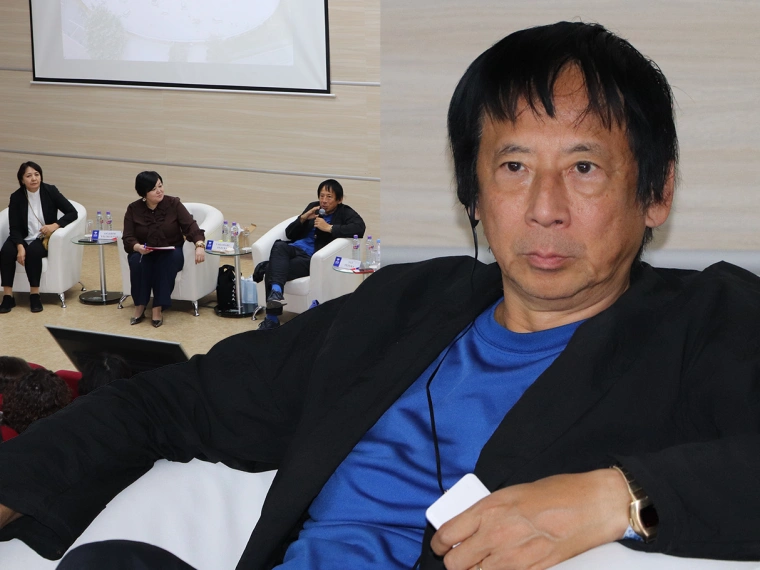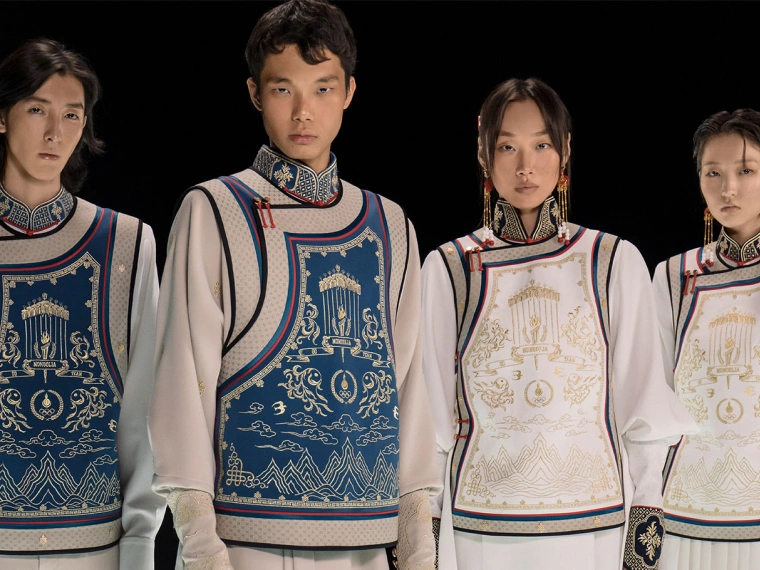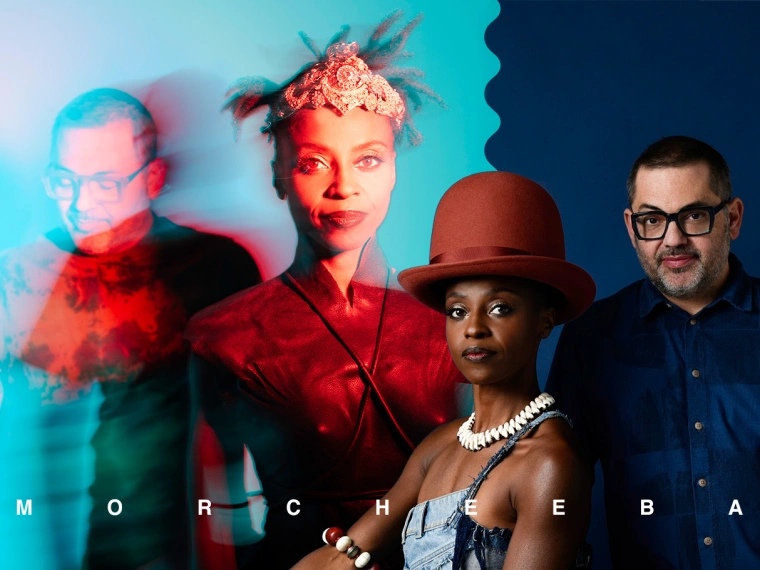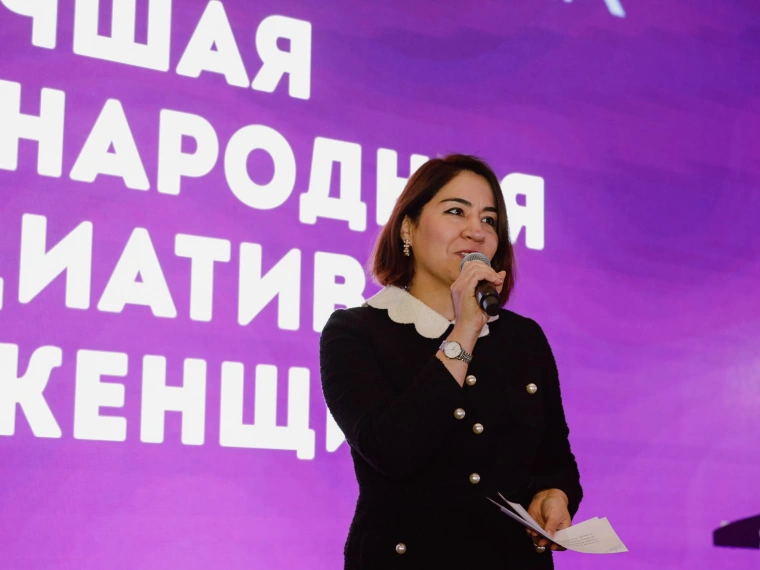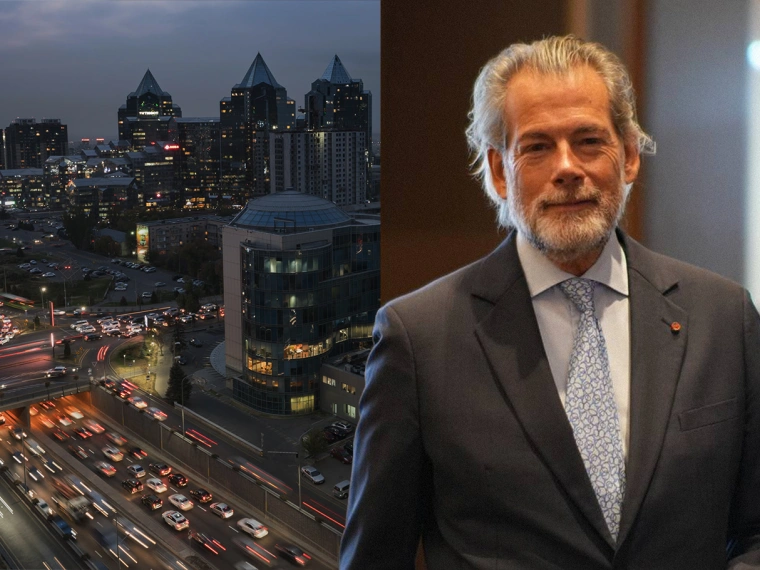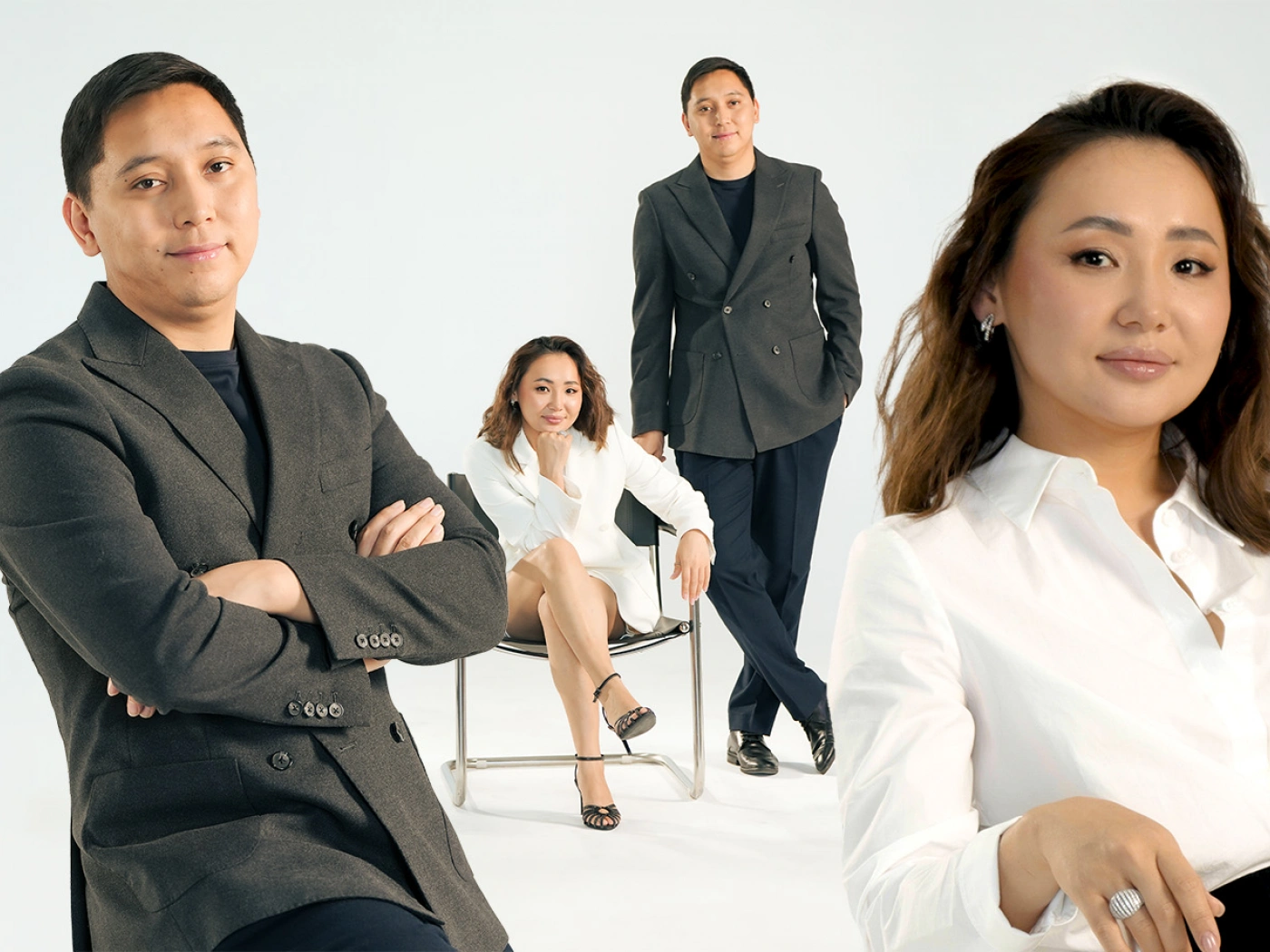
New Generation Orchestra: How a Kazakh Project is Turning Instrumental and Classical Music into a Cultural Trend
In an interview with STEPPE, Aidos and Aigerim Mendaliev, founders of Tynda Music, shared stories of their early careers, how they singlehandedly organized their first concerts, why it’s important to reinterpret classical music, and how live orchestras can be closer than you think.
— How did the idea to start Tynda Music come about?
Aidos: Before COVID-19, my friend and I were already organizing concerts — more as a creative passion than a business. But when the pandemic hit, I shifted gears to other areas: selling goods from China, organizing tours to Europe, and even working on government tenders. All of that gave me experience in marketing, finance, and navigating work with public institutions.
In 2022, as restrictions started to lift, from 30% capacity to 70%, Aigerim and I were walking on Tuleibaika when I intuitively suggested we start doing concerts again. We had both been artistic since childhood, so it felt like returning to something right and familiar, but this time with a more professional approach.
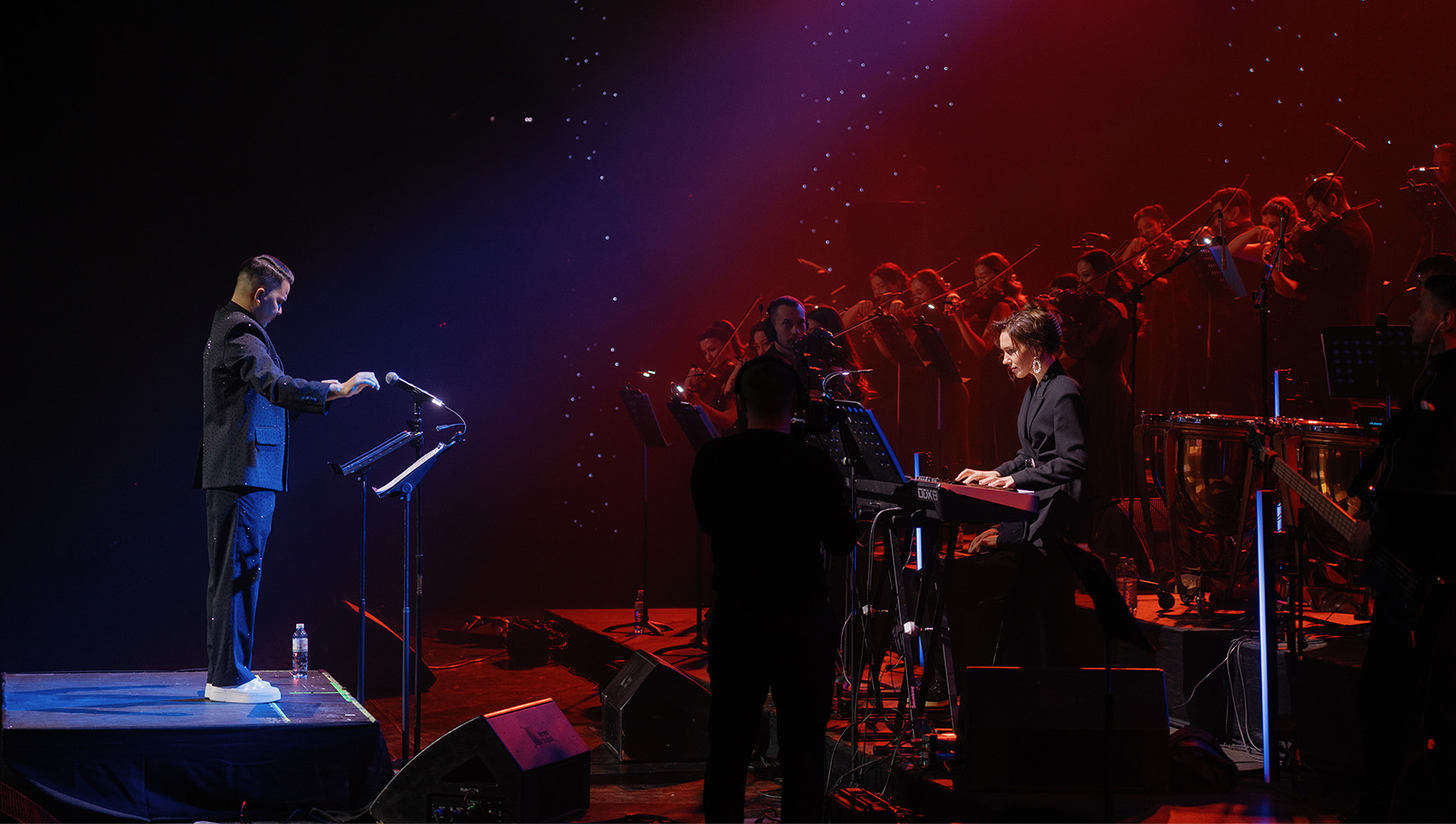
— What’s your musical background?
Aigerim: I was always the kid who performed at every event in our town. Everyone in Kokshetau knew — if you needed someone to sing, just call Aigerim. Music school was the next step for me. I started taking solfeggio and piano classes, and when I got to college, I studied three disciplines at once: choral conducting, pop vocals, and later, solfeggio teaching as a separate focus.
My love for music kept pushing me to learn more and try new things. I always wanted to go beyond what was expected. After college, I earned both my bachelor’s and master’s degrees with distinction.
Aidos: My story is pretty typical — like many kids, my parents just signed me up for music school. I played the dombra. In 10th grade, I got interested in conducting — it suddenly clicked with me. I graduated with two focuses and later got into the conservatory. That’s when the real orchestral work began. I studied while leading ensembles at the same time. All of that really shaped how I understand both music and organizing people around it.
— How did you come up with the name Tynda Music?
Aigerim: It took us a while to come up with the right name. I still remember those evening walks, talking it over, trying to find something that would reflect our Kazakh roots. We wanted it to be short and catchy — something that could work internationally but still feel local and meaningful. At the time, we were still performing under the name «Einaudi».
— Tell me about your first-ever concert. How did it go?
Aidos: Our first big concert was in September 2022, in Almaty, at the Baluan Sholak Sports Palace. We had a crowd of 4,000 people. It was just the three of us running the show — me, Aigerim, and our assistant, Batyrkhan. Of course, we outsourced things like lighting, sound, and tech, but we handled everything else ourselves.
It was intense, a lot of pressure and responsibility, but also a huge rush. Honestly, it made us feel like anything was possible.
Aigerim: Walking out and seeing a packed venue — that was a real wow moment. People didn’t show up for a pop star, they came for a symphony orchestra. And the emotions were so real, so honest. That was the first time I thought, «We’re actually doing something that matters. People want this».
After that, it wasn’t just about repeating the experience — we wanted to grow it, bring it to more places. Coming from a small town myself, that idea really hit home. It felt personal.
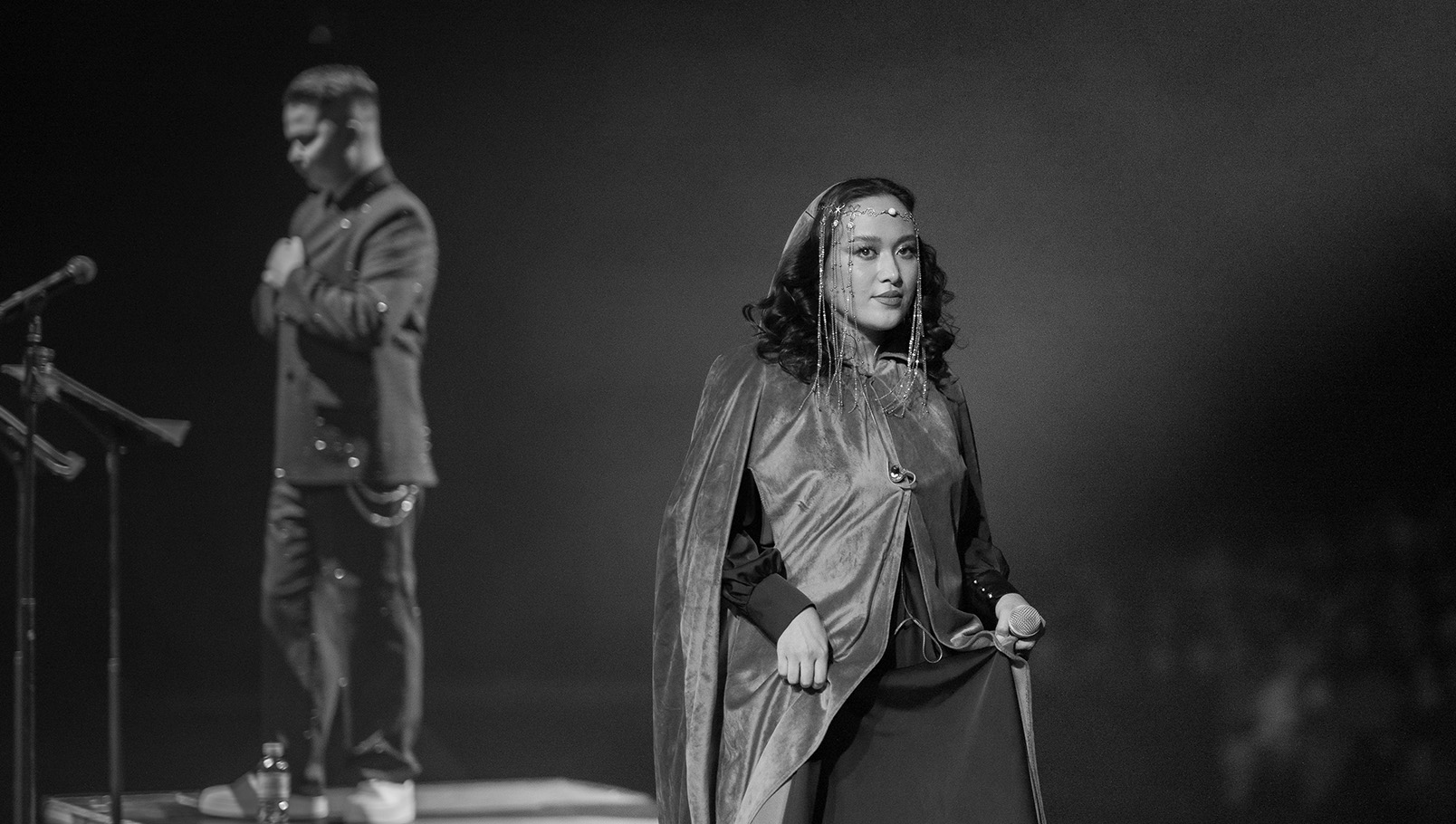
— What was your first program?
Aidos: We started our first tour with music by Ludovico Einaudi — a small, intimate set with just seven musicians. It was beautiful, atmospheric music, and we toured all the major cities in Kazakhstan with it. Later, we had the idea to do a Hans Zimmer program — and that changed everything.
We put together a 150-piece orchestra and played in Almaty. That’s when we realized: this wasn’t just a concert series anymore. It had grown into something much bigger — a full-scale project with real ambition.
— How did you go from seven musicians to 150?
Aidos: We knew we wanted a certain sound. With Hans Zimmer, a small group just wouldn’t cut it — the music needs scale and power. So we brought in 150 musicians from Almaty and Astana, rehearsed, and put the show together. It was a big risk. We didn’t have a full team — it was just the three of us. But once the idea was there, we couldn’t let it go.
Aigerim: We understood that if we were going to do an arena show, it had to be done right — proper sound, professional lighting, great musicians. Later, of course, we had to adjust the lineup for the tour — taking 150 people across the country isn’t realistic. But that concert was a real turning point. We learned to act quickly, stay focused under pressure, while keeping the performance at the highest level.
— How did audiences respond to your first tours, especially in the regions?
Aigerim: After the concert in Almaty, it was clear — we had to keep going. People started messaging us things like, «Are you coming to Kostanay?» or «Will you play in Taraz?» I’m from a small town myself, so I know how important cultural events are there. Life is bustling in big cities, but in the regions, people sometimes simply have nowhere to go.
We started touring with the orchestra — and the response was incredible. In 21 days, we did 33 concerts in 15 cities. That’s when we realized we were doing something that truly mattered.
— How did your toughest tour in December 2022 go?
Aidos: It was intense — 33 concerts in 21 days, and I conducted every single one. It was freezing, especially in some regional venues. Half the orchestra was sick, the other half just starting to recover. We performed with IV drips, rested in hotel rooms between shows, and did everything on the go.
Once, during a concert, I had a nosebleed — and it happened three times that day, once at each performance. I couldn’t even speak between pieces, so I passed the mic to a friend. But we still got on stage every night. It was a real test of endurance.
Aigerim: The conditions were tough. The venues were cold, and the schedule was extremely tight — sometimes we had three concerts in one day, starting in the morning. Our musicians weren’t used to that pace yet. We traveled between cities at night in rented minivans, because trains or flights didn’t always work with the schedule.
But despite how exhausting it was, it didn’t feel like suffering — there was real energy in it. We felt like we were doing something meaningful — and we were doing it together.
— Are you planning to set up your own rehearsal space?
Aidos: We’ve definitely thought about it. There have been times when all the usual venues we work with were fully booked — by us! We’d have multiple rehearsals happening in the same city for different concerts. It’s actually a good sign — it means the project is growing.
For now, we’re adapting and finding spaces when and where we can. But having our own space is a big investment, and right now, it just wouldn’t make sense financially. Still, if things keep moving forward, it’s something we’d love to do in the future.
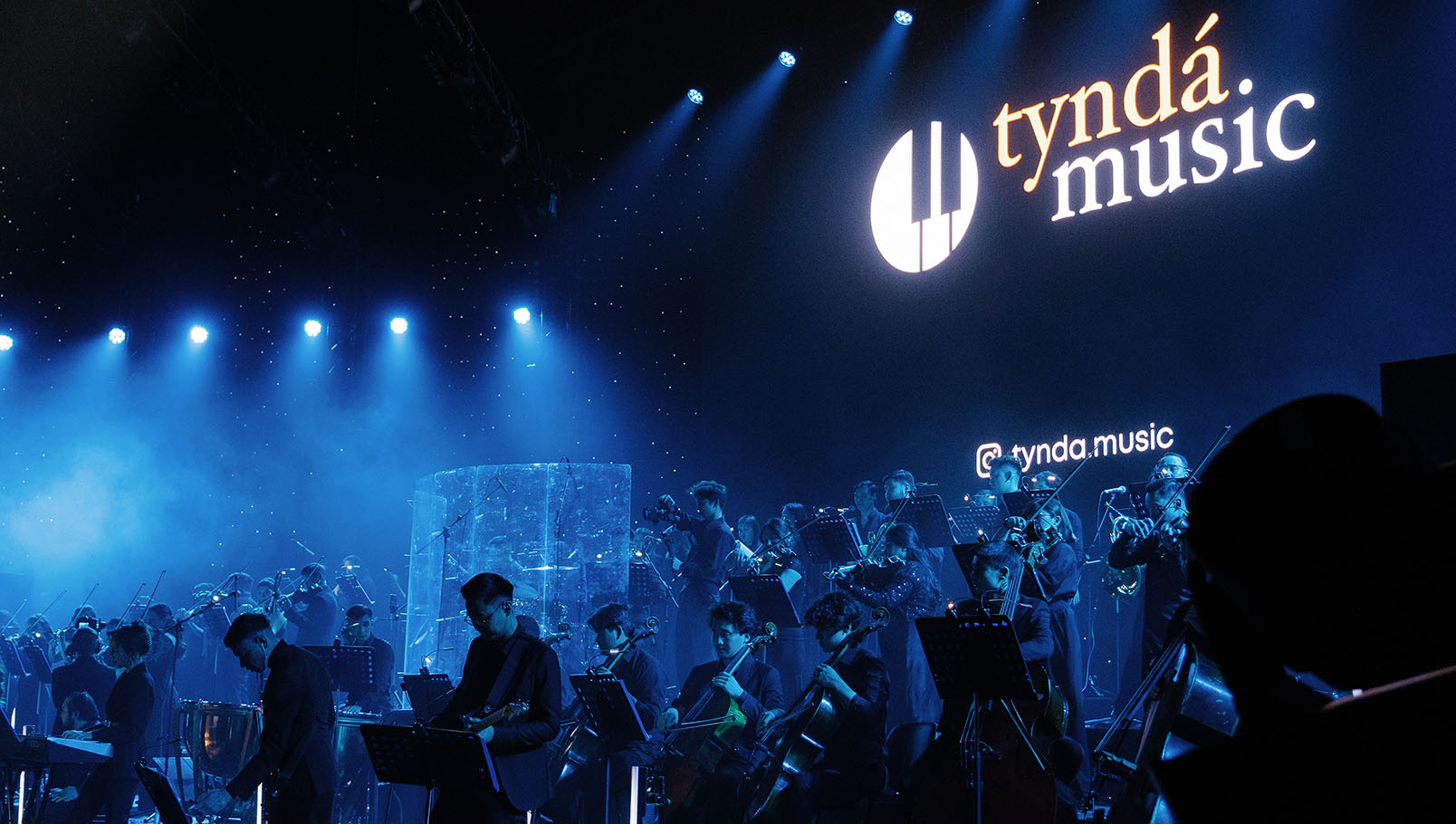
— How do you find the right people for your team, and what values do you look for?
Aidos: After those intense tours, it became clear — the three of us couldn’t keep doing it alone. We realized it was time to build a real team. First, we brought on a project manager. Then someone to put together the orchestra lineups for each program. Over time, we added marketers, ad specialists, video production, and regional coordinators. Now we’ve got a team of about 25 people — and that’s just the people working behind the scenes, not including the musicians.
Aigerim: We’re always looking for more than just skill — we want people who genuinely enjoy this pace. People who thrive in a fast-moving, large-scale environment. Things happen quickly with us — sometimes it’s only a month from idea to stage. So it’s really important that everyone understands how we work, shares the mindset, and is genuinely excited about what we’re building.
